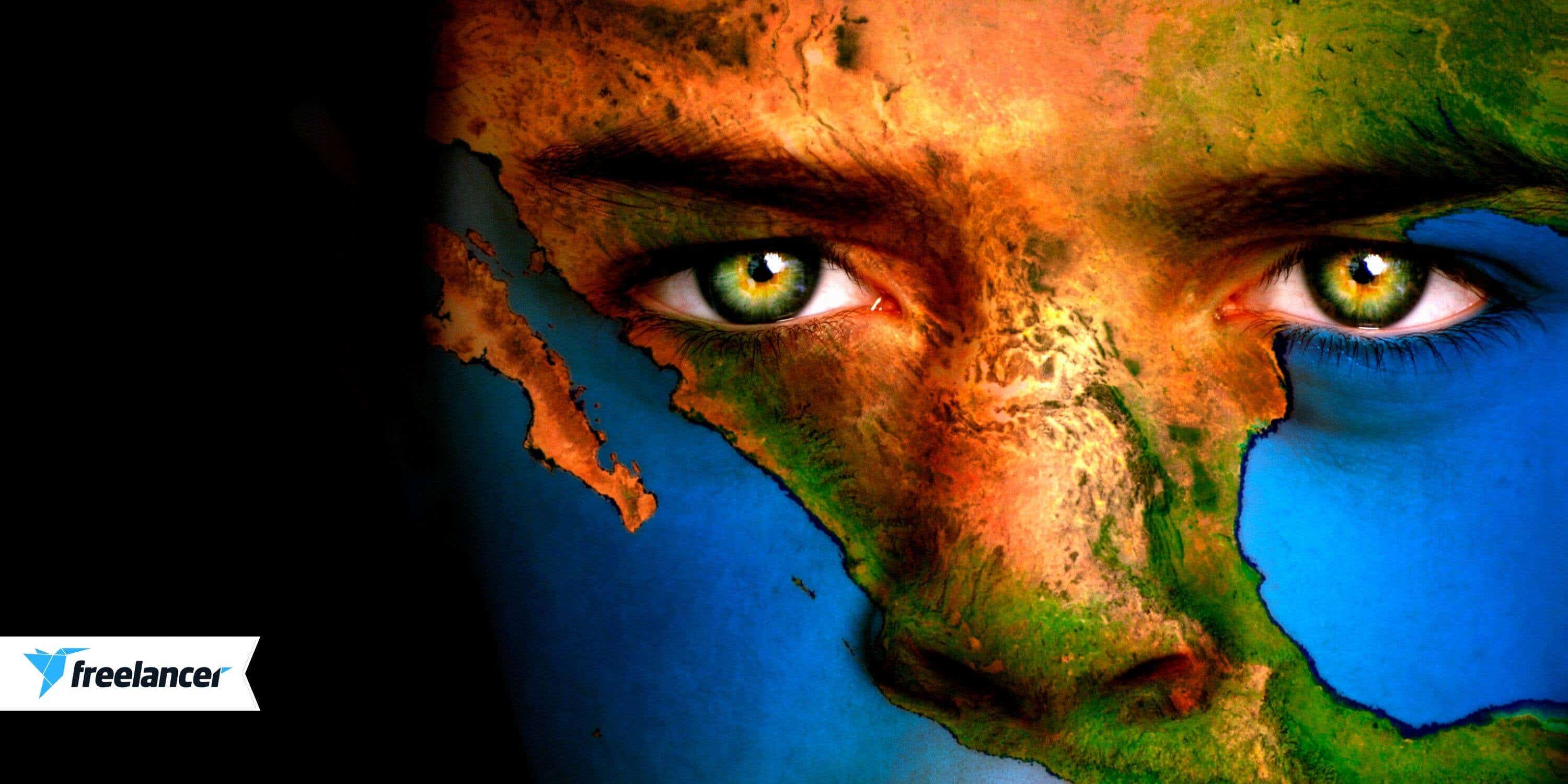Chatten Sie mit Ava - Ihrem AI Business Consultant
Hallo, ich bin Ava, Ihr KI-Leitfaden für den Erfolg Ihres Unternehmens!
Ganz gleich, ob Sie bereits ein Unternehmen führen oder davon träumen, eines zu gründen - ich helfe Ihnen dabei, Ihre Vision mithilfe von KI-gestützten Freelancern in die Realität umzusetzen. Teilen Sie uns Ihre Geschäftsziele mit, und gemeinsam erstellen wir ein Projekt, auf das unsere talentierten Freelancer ein Angebot abgeben können. Lassen Sie uns Ihre Vision in die Realität umsetzen!
Ich habe ein Geschäft
Ich gründe ein Unternehmen
Beim Senden der Konversation an Ihre E-Mail ist ein Fehler aufgetreten. Bitte versuchen Sie es später noch einmal.
Sie können Ihr Gespräch nur einmal pro Stunde speichern. Bitte versuchen Sie es später noch einmal.
Ihr Gespräch ist zu kurz. Chatten Sie weiter mit Ava, um das Speichern zu ermöglichen.
Hiring a Translator Near You: What to Look For
Are you in need of a reliable translator but don't know where to start looking?
13.04.2023 • 18 Min. Lesezeit
Aktualisiert am 26.04.2023 von Hector P.

Digital Marketer | 10+ years experience
Das Kopieren in der Zwischenablage ist fehlergeschlagen, bitte nach Anpassung Ihrer Berechtigungen erneut versuchen.
In der Zwischenablage kopiert.

Hey there fellow language enthusiast! We understand how important it is to find the perfect match for your translation needs, and that's why we're here to help you in your quest for top-notch translators near you. Whether it's a personal or professional project, finding the appropriate translation services can play a major role in clearly and accurately conveying your message. So let's delve into how you can easily find the best suited translators around your location.
Firstly, one way to ensure that you get well-rounded translation service is to begin by having a clear understanding of your particular needs. Evaluate what type of document or content you need translated, the target language (or languages), any industry-specific jargon or terminology, and the project scope, including deadline requirements. All these factors play an essential role in selecting the right translator for the job.
Once you have clearly defined your translation needs, it's time to start exploring different resources for finding local talent. One reliable way to find reputable translators close to you is by reaching out to translation organizations or associations that may have a directory of professionals in your area. These organizations are usually dedicated to maintaining high standards within the industry, so you can trust their recommendations when searching for a qualified translator .
Another fantastic resource at your disposal is online freelance platforms or professional networks such as LinkedIn where you can easily narrow down your search based on location, experience, and user reviews. This is particularly helpful if you have specific expertise requirements or if you're seeking specialized translation services catering to a particular niche.
When it comes down to choosing between local translators and remote ones, it often depends on personal preferences and project specifics. While some people prefer working closely with local professionals as they appreciate face-to-face interaction and believe it leads to a more collaborative working relationship, others may find it more convenient to collaborate remotely with the help of modern communication tools. The decision ultimately depends on your specific needs, priorities, and available resources.
To sum it up, finding suitable translators near you shouldn't be a daunting task. With a clear objective in mind, the right set of resources and a bit of research, you can successfully locate top-quality translation services close to your location that meet your requirements. Just remember to consider aspects such as experience, area of expertise, and customer reviews before making your final decision. Happy hunting for your perfect linguistic partners!
The Joy of Unlocking the World of Translation: Understanding What It Really Is
Imagine the thrill of bridging the gap between different languages, cultures, and people by simply transforming the written word! This, in essence, is what translation does. Let's dive into the fascinating world of translation and unravel its true meaning.
At its core, translation is a process that involves converting written text from one language (the source language) into another (the target language) while retaining the intended meaning, style, tone, and nuance. It goes beyond merely replacing words or expressions from one language to another. Skilled translators are adept at capturing the essence and context of a text while ensuring that it reads naturally in the target language. The ultimate aim is to maintain coherence and foster understanding between speakers of different languages.
Now you might wonder, is translation used only for literary texts or classic novels to be enjoyed by an international audience? Well, it has a much broader application! Translation plays a crucial role in various domains like business communications, legal documents, educational material, multimedia content, medical records, websites and even software localization.
An interesting aspect of translation is that it not only seeks to bridge the linguistic barrier but also addresses cultural differences. Words often carry cultural connotations and implications that require special attention during translation. For instance, idioms or metaphors unique to a particular culture may not make sense if translated verbatim into another language. A skilled translator would rephrase such instances appropriately so that they resonate with the target audience while staying true to the original message.
Translation also intersects with other disciplines like linguistics, philology, sociology, psychology and even computer science (think machine translation). Forging new connections between words and meaning across diverse languages underpins translation as both a science and an art.
So, now that we've explored the multifaceted world of translation, let's not forget the brilliant minds behind it – the translators! Time to appreciate their unwavering patience and dedication in making this world a more connected, harmonious, and intelligible place!
Who are Translators?
Translators are the bridge-builders between languages and cultures. They enable effective communication between people who speak different languages by converting written text from the source language into the equivalent text in the target language, while retaining the meaning, style, and tone of the original piece. In a world where communication is more important than ever, translators play a vital role in connecting diverse communities and businesses across the globe.
Translators come from various backgrounds and possess a wide range of skills and expertise. While many translators have studied linguistics or translation academically, there are also talented professionals who have become translators through their passion for languages and dedication to self-teaching. Some translators work solely in one language pair, while others are proficient in multiple languages. They specialize in different fields such as legal, medical, technical, literary translation or localization, adapting content specifically for a country or region with cultural nuances considered.
The journey to becoming a translator typically begins with a strong foundation in their native language and an excellent command of at least one foreign language. From there, extensive practice and experience are required to hone their translating skills. More importantly, qualified translators need to have thorough knowledge of both the culture of the source language and target language to maintain the nuances and subtleties present in texts.
In addition to academic qualifications and linguistic capabilities, translators must be detail-oriented and possess strong analytical skills as they face challenges such as idiomatic expressions, regional dialects, or cultural references that may not have direct equivalents in other languages. This requires them to research extensively and be both creative and sensitive when finding appropriate solutions.
Overall, translators play a crucial role in our global landscape, breaking down barriers through their mastery of languages and ability to adapt content for various audiences. Their diverse range of skills allows them to facilitate understanding and contribute to a more connected world, all while showcasing a deep appreciation for the richness and complexity of languages.
How to Engage a Translator?
Finding the perfect translator for your project can be a daunting task, but fear not! With the right know-how and resources, you can engage a skilled translator who will help your message resonate across linguistic and cultural borders. To ensure success, let's dive into how to identify a great translator and ensure that you're making the best possible decision for your needs.
First things first, you need to determine the expertise required for your project. Do you need general business translation or something more specialized like legal or medical content? Once you have a clear understanding of the scope and complexity of your project, it's time to start scouting translators. Be sure to search for professionals with experience translating content similar to yours. Many translators will have portfolios, testimonials or references readily available upon request - don't hesitate to ask!
Another important factor is language proficiency. Although someone may be fluent in both your source and target languages, it doesn't necessarily mean they're qualified to translate your content. It's essential to determine whether they have native-level skills in both languages and can effectively convey the intended meaning with cultural sensitivity, keeping in mind the target audience.
Technology is also an integral part of modern translation work. If you require translations involving specific software or formatting requirements (e.g. subtitles, InDesign files), it's crucial to ensure that a candidate has the necessary technical skills and tools for the task.
Once you've identified several potential translators, it's always a good idea to request quotes or proposals from each of them. This will give you an opportunity to compare their pricing, turnaround time, and overall responsiveness before making your decision. Remember that while cost is definitely an important factor when engaging a translator, choosing the cheapest option might not always yield the best results.
Last but not least, establish clear communication lines, set realistic deadlines, and provide as much context and information about your project as possible to ensure that your chosen translator can deliver top-quality work in a timely manner. With the right planning and careful consideration, engaging a professional translator can be a smooth, seamless process!
Understanding the Cost of Translation by a Translator
Language barriers are fast becoming a hurdle of the past, all thanks to professional translators! Engaging with a translator is an essential step when looking to expand your business reach, educate in different languages, or even simply communicate more effectively. To make the most of this relationship, it's essential to understand the costs associated with translation services and their breakdown. So let's dive right into figuring out the cost of translation by a translator!
Firstly, it's important to note that there is not an industry standard rate for translations since many factors influence the overall cost. The most significant factors impacting cost include language pair, complexity and technical jargon, text formatting or layout, translation speed (urgency), translator's experience and qualifications, quality assurance level (proofreading, editing), and additional services such as localization or adaptation.
Each language pair has its own supply and demand dynamic, affecting its price. For instance, translations between widely spoken languages (e.g., English-Spanish) tend to have more competitive rates than rarer language combinations. Additionally, costs often increase when dealing with highly technical or specialized content. This is because such works require translators with specific expertise in the subject matter.
The layout of your original document also affects pricing; simple Word documents typically cost less to translate than files with multiple graphics and sophisticated formatting. Rush fees are also common if you require quick-turnaround translations, so if a quick completion time is essential, be prepared for some extra expenses.
Another factor that plays into your project’s cost is your chosen translator’s background — experienced translators with higher qualifications tend to charge more. Of course, like any professional partnership or service agreement, there is often room for negotiation on rates depending on factors like word count or ongoing collaboration opportunities.
Proofreading and editing services can be vital for ensuring top-quality translations, but keep in mind that they usually add to the overall cost. It’s highly recommended, though, especially when dealing with critical documents like legal or medical texts where accuracy is crucial.
When it comes to localization and cultural adaptation services, you may find it worth the investment; think of them as an added value that ensures your content is not only translated but also appropriately tailored for the target audience.
In conclusion, understanding the various factors that influence translation costs will help you make more informed decisions when choosing the perfect translator for your needs. Remember, sometimes paying a little extra for added expertise or specialization may be worth it in the long run!
Deliverables from a Translator: Navigating the Essentials
Finding the right translator to work on your project is only half the battle. The other half lies in understanding what you can, and should, expect as deliverables from your translator. In this article, we'll discuss those essential items you need to ensure a successful translation experience with your language professional, whether they are local or remote.
The primary deliverable from your translator will, of course, be the actual translation of your content. This means they should provide a clear and accurate rendition of your original document or message in the target language while taking into consideration cultural nuances, tone of voice, target audience and other contextual factors.
In addition to the translated work itself, there are some key supplementary deliverables that deserve attention as well:
1. Proofreading: Once the initial translation is complete, it's essential for a translator to proofread their work to ensure quality control. The purpose of this step is not only to find and correct any grammatical or typographical errors in the translated document but also to verify if the intent behind certain phrases or terms is maintained across languages. Depending on the agreement between client and translator, this step can be performed either by an external proofreader/editor or by the translator themselves.
2. Formatting: Translated documents may require specific formatting requirements based on industry or audience needs. Some translators include basic formatting services within their scope of deliverables; however, additional fees may apply for more complex requirements such as desktop publishing or design adjustments needed due to language expansion or contraction.
3. Terminology management: For projects involving specialized terminology (e.g., technical fields, legal documents), it's essential for translators to maintain a glossary throughout the course of their work to ensure consistency in word usage, which would result in fewer misunderstandings and misinterpretations. It's also beneficial from a time-saving standpoint as it eliminates the need to repeatedly research certain terms during a project.
4. Project management: On larger projects or those with tight deadlines, a translator should have a solid grasp on managing their workload and deliverables. This can include establishing communication channels with the client, setting realistic timelines, and creating checkpoints for progress updates.
While not every project may require each of these supplementary deliverables, it's important to have a clear understanding upfront of what you can expect from your translator. A successful collaboration will depend on the transparency of expectations and the willingness of both parties to communicate throughout the translation process.
Working Remotely with a Translator: A Comprehensive Guide
In today's increasingly connected world, remote work has become an essential part of many businesses. Working with translators is no exception, and remote collaboration offers a variety of benefits to both clients and translators alike. This article will discuss the ins and outs of working remotely with a translator to ensure a smooth and effective experience for all parties involved.
First, let's explore the primary advantage of working remotely with a translator: the global talent pool. Hiring a translator based near you can limit your choices, potentially resulting in lower quality translations. On the other hand, working remotely opens up a vast array of options to choose from. This means that you can select the best candidate for your translation project, ensuring an accurate and high-quality result, regardless of your physical location.
A significant concern that may arise when working remotely, especially in terms of translation projects, is communication. To optimize collaboration, it is important to establish clear and effective communication channels from the outset. Many free tools are available to make this process easier, such as Skype, Slack, or Zoom. Regular communication will ensure any questions or concerns are addressed promptly and allow deadlines for translation work to be met efficiently.
Another important factor when working remotely with a translator involves providing all relevant resources and reference materials. By sharing any specific terminology requirements or style guides upfront, you can ensure your translator has everything they need to deliver a top-notch translation that meets your project's criteria.
Timelines are crucial when managing remote translation projects since there is often little room for negotiation on deadlines. To stay on track and avoid last-minute surprises or compromises in quality, make sure you are realistic about timeframes when planning your projects. Also, consider the potential need for back-and-forth revisions between you and the translator to achieve your desired result.
In conclusion, working remotely with a translator can offer numerous advantages, including access to a wider talent pool and reduced project costs. However, successful remote collaboration requires the establishment of effective communication channels, sharing of relevant resources, and careful planning from both parties. With these strategies in place, you can enjoy the benefits of a remote translator partnership without sacrificing quality or efficiency.
Pros and Cons of Local vs. Remote Translators
In the exciting world of translation, one critical decision businesses and individuals may face is whether to work with a local or remote translator. Whichever option you choose, it's important to weigh up the pros and cons for your particular needs! Keep reading to learn more about the potential advantages and drawbacks of both options - and remember, it's all about finding the perfect fit for YOU!
First, let's take a look at the many benefits of partnering with a local translator. One obvious perk is the ease of communication - when your translator lives nearby or in the same time zone, scheduling meetings or calls becomes a breeze! Plus, collaborating in person on complex projects can foster a real sense of teamwork and trust in your working relationship. Not to mention, supporting local talent not only helps your regional economy but also fosters a sense of community pride. However, do consider that by limiting your talent pool to local translators only, you may miss out on broader expertise around various languages or cultures.
Now let's consider remote translators! In today's digital age, working with someone halfway across the globe can be just as seamless as working with someone next door, thanks to powerful communication tools like video conferencing software and instant messaging applications. The digital workspace opens up a vast pool of talent from which to select your ideal translator - perhaps they have specialized knowledge in your particular industry or a unique insight into your target audience's culture! Plus, depending on location, remote translators may offer more competitive rates due to differences in their local economies. Of course, it's important to be mindful of potential challenges such as time zone differences and establishing trust in what might initially seem like an "invisible" partnership.
In conclusion, both local and remote translators have their own sets of advantages and challenges. It ultimately comes down to which factors are most important for you and your specific translation needs. Whichever option you go for, remember that the key to success lies in solid communication and finding a translator who not only has the necessary language skills but also understands your goals and vision. Happy translating!
Pros and Cons of Freelance vs. Agency Translators
When seeking translation services, you'll likely come across freelance translators and translation agencies. It's essential to understand the differences between these options and weigh their pros and cons before deciding on the ideal fit for your needs.
- Cost-effective: As freelancers usually have lower overhead costs, their services are generally more affordable than those of a translation agency. However, this may depend on the project's size, complexity, and required turnaround time.
- Personalized communication: Working with a freelance translator provides a more direct line of communication. This allows for better understanding of your needs, expectations, and any specific requirements you may have for your project.
- Specialized expertise: Freelance translators often specialize in specific industries or niches, which can be a great advantage when you need an expert who understands both the source and target languages and the subject matter of your content.
- Limited capacity: One significant disadvantage of working with freelance translators is that they might not be able to handle large-scale projects or tight deadlines as quickly as an agency.
- Reduced availability: Yet another drawback is that freelancers may not be available right when you need them if they're juggling multiple clients or projects at once.
- Large pool of resources: Agencies can easily scale up resources to accommodate bigger projects or tight deadlines by tapping into their extensive network of translators.
- Quality assurance measures: Agencies usually have in-house editors and proofreaders who ensure all translated content meets high-quality standards. They may also implement stringent quality control measures, such as certifications or industry-specific accreditation.
- Consistent style and terminology: Agencies often have translation memory tools and glossaries to maintain consistency in terminology, tone, and style across all projects for a specific client.
- Higher costs: Due to larger overheads, translation agencies typically charge more for their services compared to freelancers.
- Communication barriers: Working with an agency means you may not have direct access to the translator working on your project. This can be a disadvantage if you have particular instructions or preferences, as it might take longer for your message to reach the right person.
In conclusion, both freelance translators and translation agencies have their pros and cons. It's essential to assess your project's specific needs and requirements—such as budget, scope, deadline, and knowledge of specialized subjects—before deciding which option best suits you. In any case, partnering with a skilled professional from Freelance.com guarantees smooth communication, top-notch quality translations, and successful collaborations for every project!
Recap of Key Points in Engaging and Working with a Translator
Choosing and working with a translator effectively can be the difference between a successful global project and a missed opportunity. In this article, we will recap some key points to keep in mind when engaging and collaborating with translators.
Firstly, identifying a good translator is crucial. Look for one with expertise in your required language pair, preferably someone with experience in your specific industry. This ensures that your messages are translated accurately and with cultural sensitivity. A great resource to evaluate translators is Freelance.com or professional association directories. You can also ask for references or check online reviews.
Next, consider the cost of hiring a translator. Professional translations may not always come cheap, but remember that quality matters! Avoid unnecessarily high fees by researching market rates or asking for quotes from several translators. Also, discuss what's included in the fee, such as revisions or post-delivery support.
Establish clear deliverables for your Translator. Providing your translator with ample context about your project can help them understand the tone and nuances you wish to maintain in the translated content. Communicate openly about what you expect and ensure they have everything they need to complete the job satisfactorily.
Working remotely with translators is increasingly common, thanks to technology advancements. Although there are benefits to working face-to-face with local talent, proficient freelance translators who work remotely possess numerous advantages as well. Consider balancing both options to create a seamless and cooperative workflow.
To decide between freelance and agency translators, take into account the scope of your project, your budget, and the level of control you want over the translation process. Each option has its own unique set of benefits; weigh them according to where your priorities lie.
In conclusion, selecting an appropriate translator and effectively collaborating is essential for your project's success. By adopting the points mentioned above, you can better navigate the world of professional translation and expand your horizons across the globe. So, jump on Freelance.com and start discovering expert translators today!
Final Thoughts and Recommendations on Engaging Translators
The world we live in today is more connected than ever, and translation services have indeed become an essential requirement. No matter if you are a business owner, a writer, or just someone who desires to communicate with a broader audience, you will likely need the expertise of professional translators. But before you engage one, it is vital to make critical decisions; whether to work remotely or locally with a translator, and choosing between freelance translators or translation agencies.
Both remote and local translators have their advantages and disadvantages. When working with local talents, you can enjoy face-to-face interactions and real-time feedback. Plus, these professionals may have a better understanding of the local culture and context, which could enhance your translated material significantly. On the other hand, remote translators often offer flexibility in terms of working hours and may come at a lower cost due to decreased overheads. Moreover, engaging remote translators provides access to a global pool of talented professionals.
Similarly, freelance translators can provide personalized attention and focus on your projects but may be overwhelmed if tackling high-volume tasks alone. On the contrary, translation agencies offer the potential of handling more significant projects seamlessly but may charge more for their services due to agency fees.
At the end of the day, your decision should primarily depend on your personal preference, requirements, budget constraints, and the nature of your project. Always remember that when working with any translator—remote or local—it is crucial to establish trust through clear communication channels and set mutual expectations right from the outset.
Finally, don't forget that finding an expert translator is incredibly easy thanks to online platforms like Freelancer.com. With its extensive database of professionals from around the globe, you can effortlessly find skilled talents who understand your needs and will deliver work tailored perfectly to your preferences.
Always keep in mind that investing in good quality translation helps bridge the gap between people and cultures, fostering a more inclusive world. So, go ahead and make the right choice from an array of professional translators to enrich your content with different perspectives!
Hire an Expert Translator on Freelancer.com
If you've been following us for a while, you know that we're all about connecting people with the right professionals to help them thrive in the global marketplace. In this article, we'll explain why it's important to hire an expert translator and how easy it is to find them on
Translators play a vital role in breaking down language barriers and helping businesses expand their reach. With the rise of globalization, there is a growing demand for translators who can accurately and effectively convey the intended meaning of written content from one language into another. This includes not only literal translation but also cultural adaptation, ensuring that the translated content is well-received by its target audience.
Finding a qualified translator can be a daunting task, but it's essential to ensure high-quality translation work for your business or personal projects. That's where Freelancer.com comes in. This highly popular platform connects clients with a vast pool of expert translators from around the world, allowing you to easily find professional translators who specialize in your desired language pairing and area of expertise.
By hiring a translator on Freelancer.com, you can ensure that your translated content maintains the same tone, style, and intention as the original text while being perfectly adapted to resonate with your target market. Plus, online freelancers offer several advantages - they are often more affordable than traditional translation agencies, provide quicker turnaround times, and grant you direct access to the person working on your project, which fosters better communication and collaboration.
To find the perfect translator for your project on Freelancer.com, all you need to do is create a job posting outlining your requirements- including language pair(s), subject matter expertise needed, deadlines, and budget. Within minutes, you'll receive bids from qualified translators bidding to work on your project. You can then easily review their profiles, portfolios, and feedback from previous clients to make an informed decision.
In conclusion, hiring an expert translator can have a significant positive impact on your business's success in today's global market. And with Freelancer.com, finding the right professional for your needs has never been easier. Give it a try and take advantage of the wealth of talent available at your fingertips!
Ähnliche Storys
Sprechen Sie mit einem unserer technischen Co-Piloten, der Sie bei Ihrem Projekt unterstützt
Für Sie empfohlene Artikel

We've reviewed the top 3 translation management software in 2020
5 min read

If you create content in multiple languages it can be frustrating to manage all of your projects. We discuss the top 3 translator management software.
5 min read

If you are not catering to an international audience you are missing out on a ton of free traffic. Learn how to take your website global.
7 min read

So you've posted your project on Freelancer and the bids are rolling in. What happens next? We'll show you how to pick the perfect freelancer
6 min read
Danke! Wir haben Ihnen per E-Mail einen Link geschickt, über den Sie Ihr kostenloses Guthaben anfordern können.
Beim Senden Ihrer E-Mail ist ein Fehler aufgetreten. Bitte versuchen Sie es erneut.
Vorschau wird geladen
Erlaubnis zur Geolokalisierung erteilt.
Ihre Anmeldesitzung ist abgelaufen und Sie wurden abgemeldet. Bitte melden Sie sich erneut an.






















